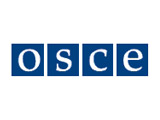|
|
TODAY.AZ / Society
OSCE supports decriminalizing libel and insult in Azerbaijan
08 February 2007 [12:17] - TODAY.AZ

The OSCE Office in Baku closely follows developments in this area, and supports civil society efforts to establish a freer and more open media, working closely with the Office of the OSCE Representative on Freedom of the Media.
Media in Azerbaijan
Since Azerbaijan gained independence from the Soviet Union, its media has been transformed from a state-run system into a variety of new media outlets. The Government has abolished censorship, adopted mass media laws and liberalized registration procedures for print media. Media outlets, however, continue to face difficulties such as: increasing violations of journalists' rights,
politicization and polarization, a decrease in pluralism and independence,
a lack of independence for electronic media, and a lack of possibilities for journalists to develop their skills.
Defamation and insult laws
Another serious obstacle that Azerbaijani journalists face is criminal libel and insult legislation. Journalists can receive prison sentences which, together with the possibility of civil defamation suits, have a strong chilling effect on the media's independence.
"Journalists in Azerbaijan have problems accessing official information and we often use information from anonymous sources," says Tahir Gumbatov, a freelance journalist in Baku. "So, the deeper you dig, the higher the chances are that you will end up in court for publishing defamatory articles."
"Defamation provisions can be used to hamper investigative journalism, prevent public debate and stifle open criticism of the Government, public officials and other powerful people," adds Ingrid Gossinger, Democratization Officer at the OSCE Office in Baku.
The Office's observations confirm that government officials or those closely connected to the Government are invariably the plaintiffs in civil defamation suits against independent media, and the courts almost always impose significant fines.
Rashid Hajili is the Director of the Media Rights Institute: "The independent and opposition media in Azerbaijan, like the pro-government media, have been known to publish personal insults and manipulate the facts. But there is an interesting pattern: it is always the opposition and independent media that face defamation suits in the courts."
From criminal to civil law
Having analyzed the situation on the ground and different perspectives on legislative reform, the OSCE Office decided to support a Yeni Nesil (New Generation) Union of Journalists project that aims to help prepare the country for changes to defamation laws. The ultimate goal is for libel, defamation and verbal insult provisions to be transferred from the criminal code to civil law.
"When we started in July 2006, it seemed like we had a long and challenging way to go," recalls Arif Aliyev, Chairman of Yeni Nesil. "But the desire to put an end to prison sentences and unreasonably high fines imposed on journalists became our key motivation in this project."
As a first step, a working group comprised of MPs and independent media experts was established. The group prepared a detailed analysis on Azerbaijan's defamation laws which were discussed at public events with international and local experts, MPs, government representatives, judges, journalists and lawyers.
On 10 October 2006, Azerbaijan's first draft law on defamation was presented and members of the public were able to share their views on its importance for Azerbaijani society and make recommendations. By December, opinions and ideas voiced at a number of meetings were incorporated into the final draft of the law and submitted to the permanent commission of the national parliament.
The key features of the draft law are that it transfers defamation entirely into the civil sphere and establishes compensation for damages proportional to the offence and the ability of citizens and the media to pay.
Looking towards the future
"Though journalists also need to strive to improve their professional standards and develop a more responsible approach to their work, adopting the new law will strengthen their role as public watchdogs and information providers," says the OSCE's Gossinger.
"Together with journalists, media experts, legal professionals and the OSCE Office of the Representative on Freedom of the Media, we will continue to lobby for the adoption of the law in 2007, which will strike the appropriate balance between freedom of expression and protection of reputation." OSCE
URL: http://www.today.az/news/society/36121.html
 Print version
Print version
Connect with us. Get latest news and updates.
See Also
- 26 May 2024 [19:15]
Ministry of Internal Affairs carries out measures against cyber fraud and bank card theft in Jalilabad - 26 May 2024 [13:15]
Shusha hosts plenum themed "Issues of preserving historical monuments in Garabagh and East Zangazur" - 26 May 2024 [10:00]
Heydar Aliyev Foundation VP attends Berlin event dedicated to bison reintroduction [PHOTOS] - 25 May 2024 [21:21]
Azerbaijani PM meets Italian prosecutor general - 25 May 2024 [19:48]
Delegation from Azerbaijan’s Defense Ministry visits Kazakhstan - 25 May 2024 [17:13]
Deputy Prime Minister attended meeting of CIS Council of Heads of Government in Ashgabad - 25 May 2024 [16:42]
Azerbaijani parliament sends letter of protest to Czech Republic - 25 May 2024 [15:40]
Azerbaijan, Moldova sign agreement on cooperation - 25 May 2024 [15:09]
Azerbaijani, German military representatives hold expert meeting - 25 May 2024 [13:36]
Another migration caravan departs for Azerbaijan's Shusha
Most Popular
 Azerbaijani border guards take control of 4 liberated villages of Gazakh
Azerbaijani border guards take control of 4 liberated villages of Gazakh
 Hikmet Hajiyev foresees global benefits if Azerbaijan hosts COP29 successfully
Hikmet Hajiyev foresees global benefits if Azerbaijan hosts COP29 successfully
 Baku airport offers about 80 destinations to passengers in summer season
Baku airport offers about 80 destinations to passengers in summer season
 South Korea spend record amount on chip production
South Korea spend record amount on chip production
 Prime Minister of Japan invited to COP29
Prime Minister of Japan invited to COP29
 Tajik Cinema Days wrap up in Baku
Tajik Cinema Days wrap up in Baku
 Delegations of defense ministries of Azerbaijan, Serbia hold working meeting
Delegations of defense ministries of Azerbaijan, Serbia hold working meeting
